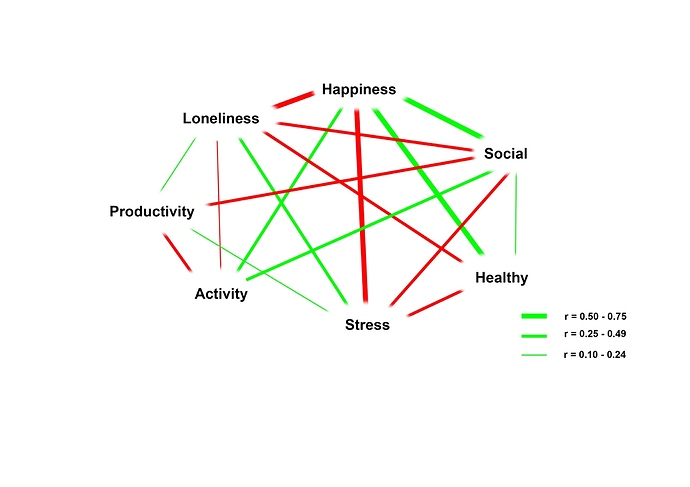I’m very interested in either finding (if someone has already done this) or creating a model of comprehensive human health. My basic thesis is that there are three components to overall health (or “the good life”) - body, mind, & spirit. In each of these components you’ll have various sub-categories. For example, body would have things like food, sleep, exercise, medical, environment, etc as sub-categories. These sub-categories may have multiple levels of sub-categories of their own. Let’s call each element a node.
My conceptual framework right now is that these nodes can be mapped out into an interconnected network. Each “end-point” node (i.e. it has no sub-nodes of its own) can then have quantifiable metrics associated with it. The connections between the nodes will have varying strenghts of connection (one can think of this as how distant the nodes are from each-other). For example, your sleep might affect your mind through your mood quite strongly, but perhaps have a very marginal effect on your spirit through your sense of meaning in life.
The ultimate goal of the project would be to come up with a series of end-point nodes, where we have some sort of quantifiable measure that we can manipulate, that would then allow us to pinpoint the things that would have most effect on our overall health.
I would like help with both brainstorming, and starting to generate the model. It’s a vast project and the main difficulty I see currently is coming up with the appropriate end-point nodes & measurements - i.e. what are the things we want to measure? How do we measure them? What kind of point-values do we assign for things?
Anywho - reply below if you know someone who is already working on this, or if you’re interested in working on this with me.

